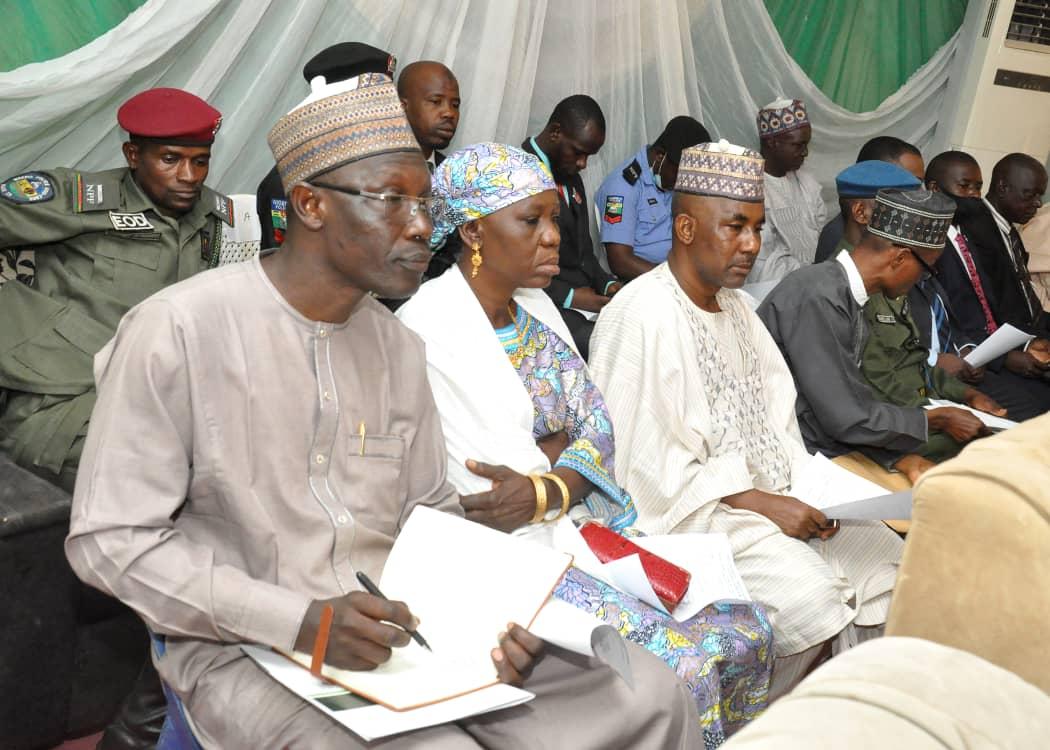Biometric Attendance Machines: Gombe trains Ministries, Agencies Supervisors
Rebecca Mu’azu, Gombe
The Gombe State Government has held a one-day induction training for 305 supervisors, who would be supervising the operations of the biometric machines in all ministries, departments and agencies, as well as schools and hospitals in all 114 wards of the 11 local government areas of the state.
Overall, the Gombe State Government has recruited over 400 personnel Biometric Attendance Supervisors to oversee the operation of over 4,000 Biometric Attendance Machines installed in various state and local government offices.
Governor Muhammadu Inuwa Yahaya, who was represented by his deputy, Dr. Manassah Daniel Jatau, said during the inauguration that the implementation of the biometric system in the civil service was essential to identify ghost workers, who have long imposed a significant financial strain on both state and local governments.

“In Gombe State attempts by previous governments to solve the riddle by way of verification year in year out has not solved the problem. This is unacceptable, lamentable and a clear negation of transparency, integrity and even religious teachings,” Governor Yahaya said.
He said the goal of his administration was to identify ghost workers, facilitate employment opportunities for genuine workers, and improve the overall productivity within the service.
According to him, “We have no ill intentions on the implementation of this Biometric Attendance System. Our sole aim is to have a highly effective and efficient civil service in Gombe, one that fosters productivity and drives the development and prosperity outlined in our development plan,” said Governor Yahaya.
He said a direct outcome of the programme was the foreign grants the state received, which the government used in reshaping the socio-economic landscape of the state.

The Governor also noted that since the introduction of the biometric system in October 2021, Gombe State had consistently saved over 23 million naira monthly, which amounted to over N1.4 billion
He said the savings were part of what was being allocated in settling the backlog of gratuity at both the state and local government levels.
The Commissioner of Finance and Economic Development, Mr. Muhammad Gambo Magaji, explained that the implementation of the biometric system was an integral component of the financial management reforms initiated by the Inuwa-led administration, which underscored the importance of cleansing the state’s payroll.
Mr. Magaji announced that as a direct result of implementing the biometric system, Gombe State has successfully obtained a 4 million dollar grant from the World Bank’s SFTAS programme.

The Biometric Programme Consultant, Dr. Isma’il Musa Jibrin, explained that the system had been designed to promote fairness and accountability while guaranteeing that no worker was unfairly penalized as every diligent civil servant would continue to receive their monthly remuneration.
Dr. Jibrin said there were well over 1000 workers in the civil service, whose salaries were being paid on a monthly basis, but were yet to be captured by the biometric machine, because they were the newly appointed government workers from the school teachers employed last year, 2023.
He said their verification was ongoing at the Treasury House, Gombe.
On how teachers who go on holidays along with their students can be verified with the daily attendance, Dr. Jibrin said the programme would wait for the recommendations of the Gombe State Universal Basic Education Board and act accordingly.
He said those who were yet to be captured but had been collecting their salaries, should be advised to own up and get verified, otherwise if the system fished them out, their salaries would be stopped.
Dr. Jibrin, however, said supposing there was such a place with no machine, the programme should be notified and the machine would be provided to them.
He said the Gate Foundation had requested that the programme should be expanded to include productivity in the primary healthcare centres in Gombe Local Government so that they could fund it.
Dr. Jibrin gave assurances to field workers, those on leave or seminars that their interest would be protected during those times, once they were backed up by official approvals.
“The worker knows to submit his approval to his desk officer, it will be entered into the system and doesn’t need to take biometric attendance. He doesn’t need to take attendance when he goes to seminars, when he goes to conferences, annual leave, maternity leave or any form of approved leave,” he said.
Dr. Jibrin said the programme had had issues with those whose duties have to do with fieldwork, but encouraged such workers to from time-to-time report to the office before proceeding to the field.
According to him, the fear in this form of arrangement is for the worker to abuse such rights by being far away from his duties post in the field, but claiming to do so.
“We have seen many instances in the past and that is truly the ghost workers,” the consultant said.
He, however, said the programme had taken care of such lapses.
In their separate remarks, the Head of Service, Alhaji Ahmed Kasimu Abdullah, the Chairperson of the Civil Service Commission, Hajia Rabi Shu’aibu Jimeta and the Accountant General of the State, Dr. Aminu Umar Yuguda, emphasized the significance of the biometric system.
They urged the newly recruited employees to approach their roles with dedication and sincerity, recognizing the sacredness of their responsibilities and the importance they have towards the success of the system.
The representative of the Gombe State Chapter of the Nigeria Labour Congress, Mr. Adamu Garba, affirmed that the implementation of the biometric attendance system in the state civil service is aimed at streamlining the service to enhance productivity and efficiency.
He called on all the civil servants in the state to cooperate for the success of this programme.

